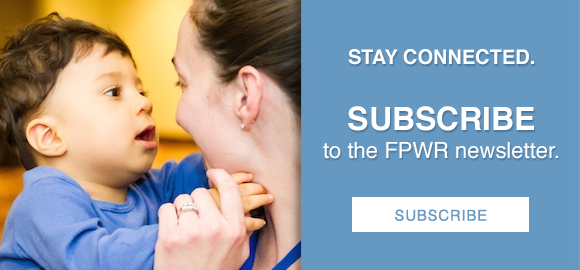FPWR’s grant program focuses on supporting innovative, high risk/high reward research in its early stages, with particular emphasis on supporting projects that will lead to new treatments for PWS.
One important objective of the grant program is to provide funding that allows researchers to establish ‘proof of concept’ and collect the information they need to be successful in securing larger awards to carry their project forward. In this way, relatively small initial investments from FPWR can be leveraged to establish large research programs funded by government agencies.
Here, we highlight a few examples of innovative FPWR-funded projects that have recently received much larger amounts of additional funding from their government institutions to continue and expand their important work! Drs. Bridgette Kelleher, Robert Nicholls, and David Godler have all successfully used their FPWR funding in this way.
Dr. Kelleher and her group at Purdue University have been developing telehealth-based interventions to improve the mental wellness of caregivers for individuals with neurodevelopmental disorders. In 2021, FPWR funded Dr. Kelleher for a $56,700 project to expand their caregiver support program (Well-CAST) to include families with PWS. In this project, the research team evaluated different telehealth-based treatment strategies to determine which are most feasible, acceptable, and effective in addressing the mental health needs of caregivers. Dr. Kelleher and her team showed that the 3 types of telehealth treatments they studied (Individual therapy, Couples therapy, and Group therapy) were feasible (all therapies had high completion rates), caregivers showed improvements with reduced depression, anxiety, and stress after completing the program, and caregivers reported good experiences with the program. Dr. Kelleher and her team used the pilot data from this FPWR-funded project (WellCAST 2.0) to submit a scaled-up version of the project to the National institutes of Health (NIH), and they were successful in securing a highly competitive grant entitled “Optimizing a Personalized Health Approach for Virtually Treating High-Risk Caregivers During COVID-19 and Beyond.” This 3-year grant from the National Institute of Child Health & Human Development provides approximately $3 million in support to develop WellCAST 3.0, a scaled-up version of their FPWR project, which will enroll 1000 caregivers, including 200 PWS caregivers.
Dr. Nicholls is an expert in PWS genetics who is using his knowledge of the intricacies of the PWS genetic region to develop a potential gene therapy for PWS. In 2021, FPWR funded Dr. Nicholls and his group at the University of Pittsburgh to begin to develop an innovative genetic therapy approach that used a single adeno-associated virus (AAV)-vector that could code for up to 80% of the genes in the PWS critical region. This pilot study sought to build this AAV vector and begin to assess the feasibility of this approach. Dr. Nicholls used the pilot data from this FPWR-funded project to submit an application to the NIH to further this research, and was awarded a new grant entitled “Prader-Willi syndrome (PWS) gene-domain and AAV miniaturization for gene therapy” which provides more than $229,000 in funding to continue this work. The NIH funded project will test whether this AAV-based gene therapy approach, which they built during the FPRW-funded study, 1) appropriately expresses the PWS gene products in cells, and 2) will rescue the phenotype (characteristics) of PWS when injected into a mouse model of PWS.
The final example involves a project aimed at developing a newborn screen for PWS. Newborn screening is the ‘heel prick’ blood test done at birth on all new babies. A newborn screen for PWS would allow all babies with PWS to be identified shortly after birth, allowing them to receive early interventions, including growth hormone therapy, as soon as possible. In 2018 FPWR joined with other research foundations to co-fund Dr. David Godler to develop an economical and scalable newborn screening test that identifies multiple developmental disorders, including PWS, at birth. This test used newborn dried blood spots, and the results showed that the test was feasible for screening all chromosome 15 imprinting disorders (PWS, Angelman syndrome and Duplication15). This newborn screen technology is currently being tested in a pilot study in North Carolina. The results from these projects have enabled Dr. Godler to receive an additional $3 million in Australian federal funding from the Medical Research Future Fund (MMRF) to screen 100,000 babies in Australia for 8 developmental disorders, including PWS. This new project entitled “Assessing benefits of extended genomic newborn screening trialed on 100,000 infants from Generation Victoria”, will allow Dr. Godler to establish how common these developmental disorders are in the Australian population, as well as determine how feasible and cost-effective this type of newborn screen is compared to the current methods of identifying PWS and other developmental disorders.








